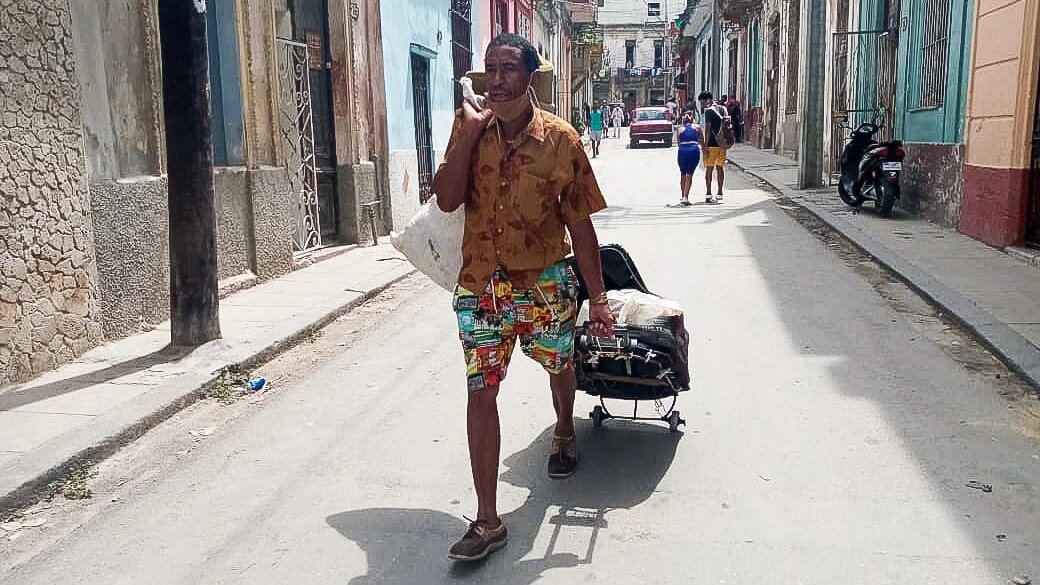In Varadero, the waiters had barely finished clearing the tables of the big party bringing the 2022 FITCuba International Tourism Fair to a close when rescuers and firefighters were already looking for victims in the rubble of what was left of the Saratoga Hotel in Havana.
"Bomb!" was what was repeated by the thousands of passers-by who nervously surrounded the mortal remains of the iconic building. One lady in a nurse’s uniform was heard saying, with evident anger: "I'm not surprised, with the hunger there is, and these people do nothing but build hotels."
It was not a bomb, they say, but rather an accident. The nurse was right, however: these people, the Castro government, are building hotels at such a rate that an unaware observer would assume that they govern a country where education, health, food and infrastructure are in strong condition. But, how can anyone understand a country investing 44 times less in public health and social assistance than in tourism development and real estate for foreigners?
To repeat: the "very humanist" Castroist government is investing 44 times more in hotels than hospital infrastructure. There is no need to speculate what the hospitals are like in this country at this point ? referring to hospitals for the people, as clinics for foreigners, the military and politicians are a separate issue.
The nurse spoke of hunger – that of a people whose plight stands in sharp contrast to the photographs regularly sparking waves of indignation on social media of banquets attended by Castroism’s top brass merrily celebrating official events featuring fine wines and three Michelin-starred tapas.
There is hunger because agriculture is not recovering despite the much-touted "63 measures." The production of roots and tubers and fruits and vegetables has stagnated at levels far below the 30 pounds per capita per month that the Government has been promising for years, and in 2021 the production of rice, a popular staple, fell by 15%, while that of proteins such as beef, eggs and milk fell by 13.5%, 10.5% and 16%, respectively; and drops in pork production hit records (it plummeted another 53.5% after a fall the previous year).
Of course, when you allocate 13 times more to tourism than to agriculture, it is difficult to reduce hunger. You read that right: agriculture, which employs almost 20% of the labor force in Cuba, and that could produce the 2 billion in annual food imports that the country needs now, receives one thirteenth of what tourism does. But it gets even worse: in 2021 Cuba invested half what it did in 2020. How, then, can there not be hunger in Cuba?
Adding insult to injury, in an aberrant move the Government is spending 1.5 billion dollars building hotels at the same it is reducing the importation of Vietnamese rice, and domestic production is waning. It imported a mere $74.4 million worth of chicken, practically the only protein on Cubans’ tables, during the first quarter of 2022. Couldn't they at least import twice as much chicken, when the prices of their American suppliers have not risen?
Castroism's handling of the nation's resources is truly outrageous. There is no economic justification for devoting 43% of national investment to a single sector when the country is, literally, falling apart, when it is not exploding. This aggressive investment in tourism has never made sense, turning the country into an importer of all the supplies it needs, which are not produced in Cuba due to a lack of other investments, which greatly reduces its profit margins.
It makes even less sense to continue investing at the same pace in the wake of a pandemic that brought the world to a standstill for two years, suppressing demand for leisure travel like never before, and when many hotels in Cuba are closed, and when even the most optimistic forecasts for 2022 predict 32 tourists per room will arrive ? when in 2018 there were 69, which was hardly a banner year. Above all, it makes no sense when the world is on the verge of a historic economic recession that is poised to devastate the cheap and monotonous tourism that Cuba sells.
Why Castroism is doing this is a mystery, but one thing is crystal clear: it is not possible to do something that is, clearly, so bad, for so long, for good reasons. There is something very shady behind it: money laundering? Under-the-table commissions and bribes? Direct investment in the foreign companies involved in the hotels’ construction so as to have enough properties to distribute between the oligarchs who are ready to tear Cuba up and divvy the spoils if Castroism falls? In the absence of proof, the only thing that can be said, to borrow from Shakespeare, is that, if "something's rotten Denmark," in the tropical heat it is downright putrid.
